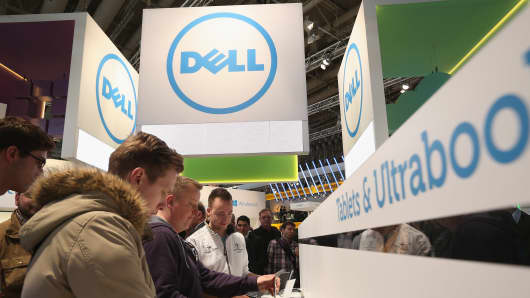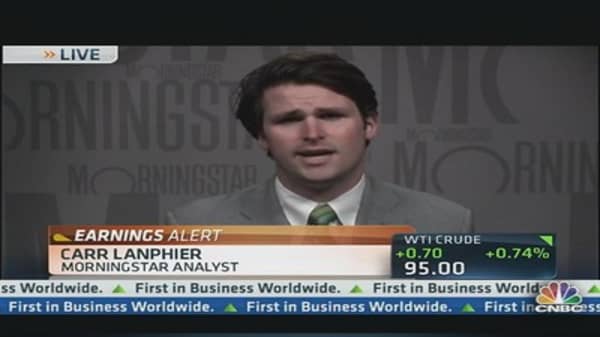Dell reported earnings that fell far shy of market expectations on Thursday, but revenue beat forecasts as strength in its enterprise solutions business offset declining PC sales.
What is the stock doing now? (Click here for the latest after-hours quote.)
Net income came in at $130 million, or 7 cents per share, down 81 percent from $635 million, or 36 cents per share, a year earlier, as the company's gross margin shrank to 19.5 percent from 21.3 percent and its operating expenses rose 12 percent as it tries to reposition its business.
Dell has been trying to turn itself into a solutions provider in order to offset the declining PC business as consumers move toward mobile devices like smartphones and tablets.
Earnings excluding items were $372 million, or 21 cents per share, down 51 percent from $761 million, or 43 cents per share, in the year-earlier period.
Brian Gladden, Dell's CFO said in a statement, "We have taken actions to improve our competitive position in key areas of the business, especially in end-user computing, and it has affected profitability."
Revenue slipped 2 percent to $14.07 billion from $14.42 billion a year ago. Enterprise solutions sales rose 12 percent to $5.5 billion, while its PC and computing unit saw a 9 percent decline in sales to $8.9 billion.
"The solutions business is where the value is, so it's encouraging to hear that that was growing materially," Morningstar analyst Carr Lanphier told CNBC after the results.
Analysts were expecting Dell to report earnings of 35 cents per share on revenue of $13.50 billion, according to estimates from Thomson Reuters.
Markets were braced for a disappointing number after the company pushed up its earnings announcement three business days.
Dell also said that it will not provide an outlook for the second quarter given its announcement of an agreement to take the company private.




